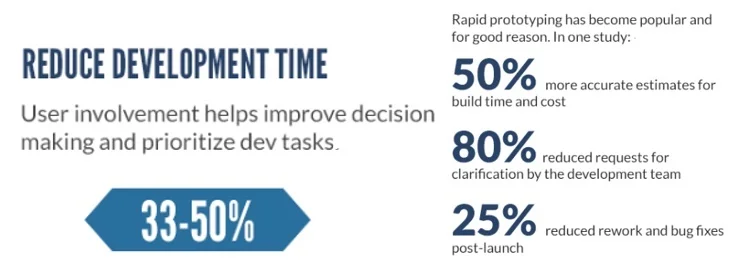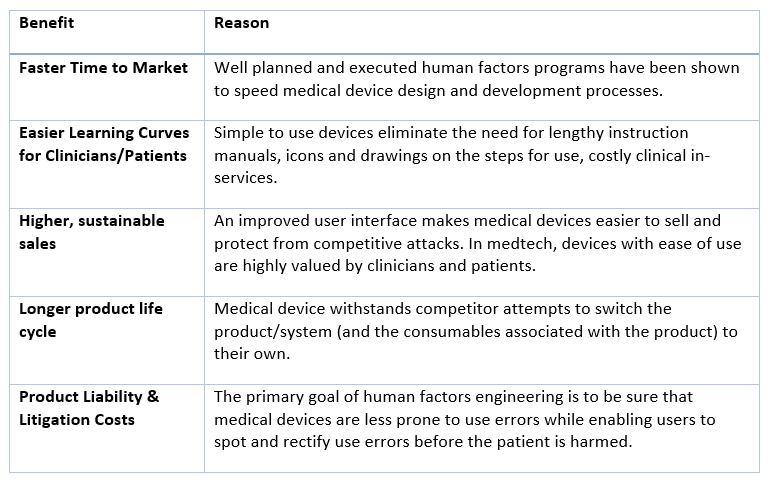While there is no specific data that provides ROI on medical device human factors usability testing, there is plenty of applicable data for usability testing across multiple industries.
In medical devices, usability testing is not done by choice, it is mandated by FDA and other global regulatory bodies. Still, there are plenty of business best practices reasons to perform human factor usability testing because there is a great return on investment for medical device companies.
Medtech Development Benefits – Faster Development/Rapid Prototyping
Commercialization Benefits
Medi-Vantage Provides Subject Matter Experts for Human Factors Usability Testing
Why use subject matter experts like those of us at Medi-Vantage to perform your usability testing rather than rely on companies who perform usability testing across a variety of industries? Subject matter experts with medical device experience have walked in your shoes and understand the value of making medtech products faster, easier and more intuitive through human factors usability testing. Our teams have watched doctors, nurses and patients struggle using devices that did not have human factors usability testing as the cornerstone of their design.
Human Factors Usability Testing Is Even More Important When Patients Interact with Medical Devices
Recent information[i] that CMS is allowing home health agencies to bill Medicare for remote patient monitoring means the devices that will be used in the home by patients, who have vastly different ranges of experience. This means that medical devices need to be more intuitive to use than ever before.
This is a big deal. In a report by Modern Healthcare, approximately 3.4 M Medicare beneficiaries received home health services in 2016 costing Medicare almost $1 .8 B. In addition, home infusion therapy suppliers will be administering medications in the home. Although these home infusion nurses are trained RNs, any device used by an RN who is not routinely in the hospital and therefore exposed to the ongoing training that hospitals provide needs to be as clinician and patient-friendly as possible.
Home health will grow substantially in the coming decades as baby boomers continue to retire. Remote patient monitoring will allow healthcare providers to collect health information about patients digitally, which can lead to more tailored care and better health outcomes. Is your device ready for the digital health benefits that home health will require?
Contact Us. Our last four human factors engineering usability studies were:
A medical device for in-home treatment of sick newborns
A wound care treatment that provides faster healing times
An injector pen designed for elderly patients
Minimally invasive surgical tools
[i] https://www.modernhealthcare.com/article/20181031/NEWS/181039966ielsen, Jakob, Usability ROI Declining, But Still Strong
[ii] Strategic Data Consulting Special Report, 2009 UX Business Impacts and ROI; n=735
[iii] http://crossings.sapientglobalmarkets.com/2013/04/03/user-centered-design-increasing-the-value-of-data/
[i] Nielsen, Jakob, Usability ROI Declining, But Still Strong
[ii] Strategic Data Consulting Special Report, 2009 UX Business Impacts and ROI; n=735
[iii] https://www.experiencedynamics.com/blog/2014/07/making-strong-business-case-roi-ux-infographic
[i] https://spectrum.ieee.org/computing/software/why-software-fails



